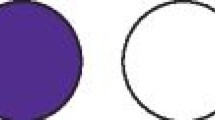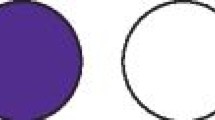Abstract
Data sources
The Cochrane Oral Health Group's Trials Register, the Cochrane Central Register of Controlled Trials (CENTRAL), Medline, Embase, AMED, CINAHL and CANCERLIT databases were searched. The metaRegister of Controlled Clinical Trials and ClinicalTrials.gov were also searched to identify ongoing and completed trials. Reference lists of included studies and relevant reviews were also searched. There were no restrictions on the language of publication or publication status.
Study selection
Randomised controlled trials of non-pharmacological treatments for patients with dry mouth at baseline.
Data extraction and synthesis
Study assessment and data extraction were carried out independently by at least two reviewers. Mean difference (MD) and standardised mean differences (SMD) together with 95% CIs were calculated where appropriate.
Results
Nine studies (366 participants) were included in this review, eight were assessed at high risk of bias and one at unclear risk of bias. Five small studies (153 participants), with dry mouth following radiotherapy treatment compared acupuncture with placebo. Four were at high risk and one at unclear risk of bias. Two trials reported outcome data for dry mouth in a form suitable for meta- analysis. The pooled estimate of these two trials (70 participants, low quality evidence) showed no difference between acupuncture and control in dry mouth symptoms (SMD −0.34, 95% CI −0.81 to 0.14, P value 0.17, I2 = 39%) with the confidence intervals including both a possible reduction or a possible increase in dry mouth symptoms.
Acupuncture was associated with more adverse effects (tiny bruises and tiredness which were mild and temporary). There was a very small increase in unstimulated whole saliva (UWS) at the end of four to six weeks of treatment (three trials, 71 participants, low quality evidence) (MD 0.02 ml/minute, 95% CI 0 to 0.04, P value 0.04, I2 = 57%), and this benefit persisted at the 12-month follow-up evaluation (two trials, 54 participants, low quality evidence) (UWS, MD 0.06 ml/minute, 95% CI 0.01 to 0.11, P value 0.03, I2 = 10%). For the outcome of stimulated whole saliva (SWS, three trials, 71 participants, low quality evidence) there was a benefit favouring acupuncture (MD 0.19 ml/minute, 95% CI 0.07 to 0.31, P value 0.002, I2 = 1%) an effect which also persisted at the 12-month follow-up evaluation (SWS MD 0.28 ml/minute, 95% CI 0.09 to 0.47, P value 0.004, I2 = 0%) (two trials, 54 participants, low quality evidence).
Two small studies, both at high risk of bias, compared the use of an electrostimulation device with a placebo device in participants with Sjögren's Syndrome (total 101 participants). A further study, also at high risk of bias, compared acupuncture-like electrostimulation. None of these studies reported the outcome of dry mouth.
A single study at high risk of bias compared the stimulatory effect of powered versus manual toothbrushing and found no difference for the outcomes of UWS or SWS.
Conclusions
There is low quality evidence that acupuncture is no different from placebo acupuncture with regard to dry mouth symptoms, which is the most important outcome. This may be because there were insufficient participants included in the two trials to show a possible effect or it may be that there was some benefit due to ‘placebo’ acupuncture, which could have biased the effect to the null. There is insufficient evidence to determine the effects of electrostimulation devices on dry mouth symptoms. It is well known that dry mouth symptoms may be problematic even when saliva production is increased, yet only two of the trials that evaluated acupuncture reported dry mouth symptoms, a worrying reporting bias. There is some low quality evidence that acupuncture results in a small increase in saliva production in patients with dry mouth following radiotherapy.
There is insufficient evidence to determine the effects of electrostimulation devices on dry mouth symptoms or saliva production in patients with Sjögren's Syndrome. Reported adverse effects of acupuncture are mild and of short duration, and there were no reported adverse effects from electrostimulation.
Similar content being viewed by others
Commentary
Saliva is needed to keep the mouth moist and it is required for several functions such as talking, chewing, swallowing and tasting. Saliva is also necessary for bacterial control and for denture retention in edentulous patients. When the amount of saliva diminishes for several reasons such as the side effects of certain medications, diseases and head and neck radiation, it can affect patients in many different ways depending on the severity of the condition. Dry mouth is a common problem and in severe cases can severely affect oral health and quality of life. Treatment of the elderly can be complicated by co-morbidities, and increased rate of adverse events related to therapeutic agents and polypharmacy. Therefore, careful follow-up of treatment is required.1
Finding alternative treatments to the already known local and pharmacological therapies is a good topic to consider. This review addressed a clearly focused question in term of population, intervention and outcome.
The authors seek for the appropriate papers, which are randomised, controlled trials (RCTs) comparing techniques designed or used to stimulate saliva production (such as acupuncture, laser or electro-stimulation with either placebo or with another treatment).
Relevant studies were included. The author searched multiple databases, in addition to hand searching for ongoing controlled clinical trials. Studies were included irrespective of language or publication status. The authors did an appropriate quality assessment of the included studies.
The results of the review have been reasonably combined according to the intervention (five studies about acupuncture, two studies about electrical stimulation and one study about powered tooth brush use). Regarding the applicability, the review included participants with Sjogren's syndrome, patients with previous radiotherapy due to head and neck cancer, and patients with other causes of dry mouth, so that gland functions and prognosis varied among participants and may vary among patients with non-significant medical history.
Regarding the results we need to consider the clinical relevance and cost of the different interventions since the side effects seem to be minimal. Acupuncture, laser and electro-stimulation need specific skills, however if they show some benefit in patients with severe xerostomia, it could be an alternative to pharmacological interventions.
References
Moerman R V, Bootsma H, Kroese F, Vissink A . Sjogren's syndrome in older patients: aetiology, diagnosis and management. Drugs Aging 2013; 30: 137–153.
Author information
Authors and Affiliations
Additional information
Address for correspondence: Luisa Fernandez Mauleffinch, Review Group Co-ordinator, Cochrane Oral Health Group, MANDEC, School of Dentistry, University of Manchester, Higher Cambridge Street, Manchester, M15 6FH, UK. E-mail: luisa.fernandez@manchester.ac.uk
Furness S, Bryan G, McMillan R, Worthington HV. Interventions for the management of dry mouth: non-pharmacological interventions. Cochrane Database Syst Rev. 2013; 8: Art. No: CD009603. DOI: 10.1002/14651858.CD009603.pub2.
This paper is based on a Cochrane Review published in the Cochrane Library 2013, issue 8 (see www.thecochranelibrary.com for information). Cochrane Reviews are regularly updated as new evidence emerges and in response to feedback, and the Cochrane Library should be consulted for the most recent version of the review.
Rights and permissions
About this article
Cite this article
Bakarman, E., Keenan, A. Limited evidence for non-pharmacological interventions for the relief of dry mouth. Evid Based Dent 15, 25–26 (2014). https://doi.org/10.1038/sj.ebd.6400989
Published:
Issue Date:
DOI: https://doi.org/10.1038/sj.ebd.6400989



